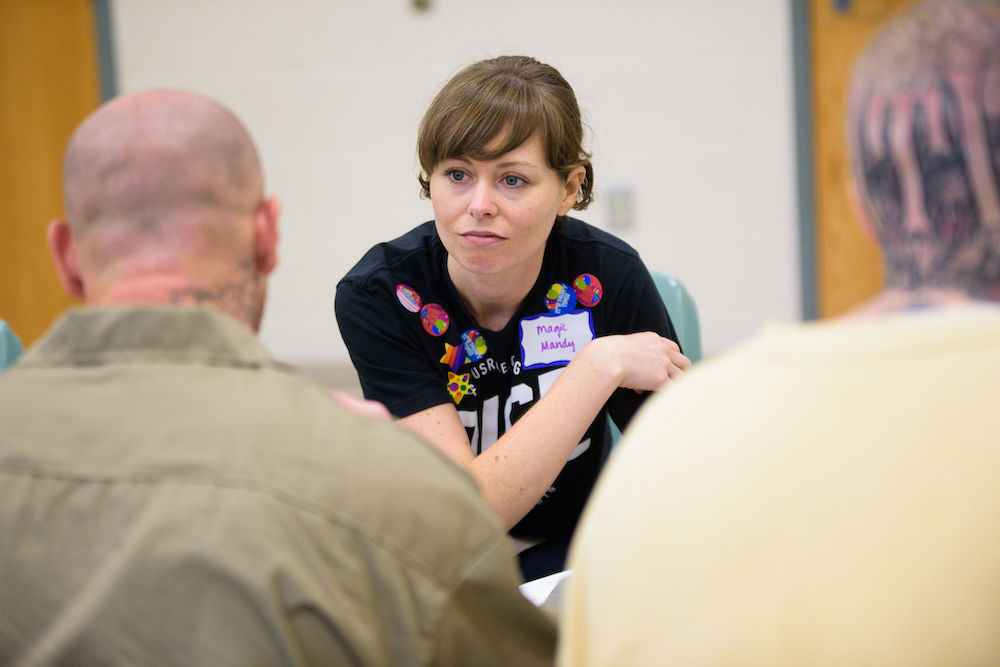
Do you consistently feel your feelings?
It’s human nature to resist discomfort. But just because it’s natural doesn’t mean it’s good for us. If you want more clarity and confidence, allow yourself to feel all of your feelings—even the uncomfortable ones.
Why do you need to feel your feelings?
Personally, I think our spiritual growth depends on feeling our feelings. I think it’s through integration of our pain that we grow into whole, loving beings.
Spiritual beliefs aside, feeling is an incredibly practical way to build confidence. Our emotions drive our actions. When you avoid your feelings, they don’t go away. They continue to impact your behavior, usually in confusing and unintended ways.
Once, I was trying to improve my career, but suddenly thinking a lot about my mom who had died many years earlier. I was working with a life coach at the time who helped me see that I was feeling both straightforward grief and fear-driven anxiety. I had to untangle it all. Once I acknowledged my grief and ditched thoughts like, You should be over this by now! I was able to move forward with my career change.
Our emotions drive our actions.
Plus, feeling your feelings gives you clarity. You have within you a wealth of information—about your life purpose, what you want, how to achieve it. To clearly hear this inner wisdom, you have some decluttering to do. I’m not talking about free 5K Fun Run t-shirts here. I’m talking about uncomfortable emotions. You can learn to tap into your inner wisdom more fully, and the first step is to feel your feelings.
Make space for the discomfort
One way to feel your feelings is to practice expansion, a process Dr. Russ Harris summarizes in The Happiness Trap as the following four steps: observe, breathe, expand, and allow.
1) Observe the feelings you’re experiencing without judgement.
2) Breathe deeply, particularly into the area of your body where you sense the most discomfort. (For example, when I’m feeling especially anxious, it’s often in my shoulders.)
3) Then visualize making room for the feeling. You might imagine expanding the feeling’s space beyond the constraints of your physical body.
4) Finally, allow the feeling to be there, even though it’s unpleasant. Allow it without judgement, knowing that it’s not good, and it’s not bad—it just is.
Remember that discomfort is temporary. When you allow your feelings, they can flow through your body without a struggle, and soon fade.
Notice your physical sensations
We experience emotions in our body. So, a natural complement to the practice of allowing your emotions is to notice your physical sensations.
My favorite technique is the body scan. Mentally scan your body, starting at either your feet or your head. Without judging, just notice any sensations that are present anywhere in your body. For example, here are some sensations I notice in this moment:
My face is tight, especially my eyebrows. My shoulders are tense, my neck is tight. My fingers are a little cold, and the tops of my hands. I’m not taking very deep breaths. I notice my lower back – not discomfort, but sort of an alertness, like it’s taking effort to sit tall. My thighs are a little cool.
Describe your feelings accurately
Finally, notice the language you use to describe your emotional experience.
We tend to say things like, “I’m anxious.” But that language implies a sort of finality or identity. As if you are an anxious person, now and ever shall be.
Whether you’re talking aloud to others or to yourself in your mind, use language that respects the transient nature of feelings.
Use language that respects the transient nature of feelings.
I’m experiencing anxiety… I feel anxious at the moment… I notice my body feels anxious… I’m having a feeling of anxiety.
You don’t have to feel your feelings alone
Over the years, many people have helped me feel my feelings, from therapists to life coaches to my ever-patient husband and friends. And I help my clients through similar challenges, whether it’s being with grief or pinpointing true feelings about a major life decision.
If you’d like some support with this, let’s talk.
PC McKenzie Ring with RISE